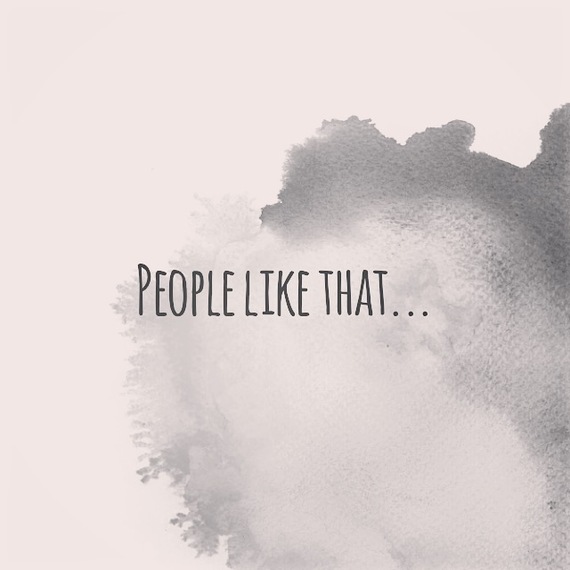"People like this... Women like that.... Children like those..."
The problem with generalizations is that people aren't just one thing. Human beings are multi-faceted; layers upon layers of woven together with beauty, with short comings, with conflicting traits, with divine-ness.
These types of generalizations are short sighted. The cheat us out of fundamental thing we are: human.
The also keep us safely separate from others. "People like that" are not like us. As if we didn't share any of the millions of traits people like that have. We miss what's not being shown, or what we are too narrow focused in the moment to see.
When we make reference to others using phrases conforming to "people like that" we limit our view of them and everything else that makes up their being. We also do this to ourselves when we over identify with a negative emotion or trait. We back ourselves into a corner with our own generalizations -- about others and ourselves.
The practice of inclusivity solves this problem.
My friend said to me the other day, "I'm insecure." I said to her, "What else can we include in that bucket? Excited, hopeful, afraid, normal, human, pretty, long haired, brown eyed, barefoot, hungry..." The list could go on and on.
She wasn't just insecure, she was a whole panoply of other traits; human traits.
Do you see how one could breathe a bit in that space? This approach created a space between the identity of being just an insecure person, potentially even broken, and instead, made for a whole person with a wide array of traits and experiences; some positive, some negative, some neutral.
Using inclusivity in this way protects us from our autopilot ill-serving generalizations.
There is no "people like that" when we practice inclusion. Only the many facets of a human being.
There's always more going on than you think, or see, or accept...
